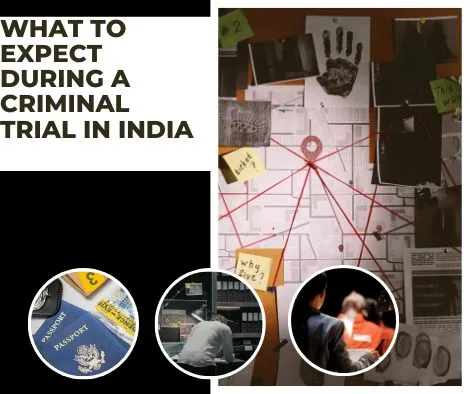In this article we have explained Guidance on Challenging a Police FIR
Introduction to FIR and Its Legal Implications
An FIR (First Information Report) is a critical document in the Indian legal system, acting as the initial step in a criminal investigation. This article aims to provide comprehensive guidance on challenging a police FIR, a situation one might encounter if they believe the FIR filed against them is unjust or has factual errors.
Understanding FIR: The Foundation of Criminal Proceedings
The FIR, lodged under Section 154 of the Criminal Procedure Code (CrPC), is a written document prepared by the police when they receive information about the commission of a cognizable offense. It sets the process of criminal justice in motion and is thus of paramount importance.
When and Why to Challenge an FIR
Challenging an FIR is necessary if there are grounds to believe that the information it contains is incorrect, misleading, or maliciously filed. Grounds for challenge could include lack of evidence, discrepancies in statements, or personal vendetta.
Guidance on Challenging a Police FIR
Step-by-Step Guide to Challenging an FIR
Step 1: Legal Consultation
Seeking Professional Advice
Before taking any steps, consulting a legal professional is crucial. They can provide a clear understanding of the laws pertaining to FIRs and the feasibility of challenging it.
Step 2: Gathering Evidence
Collating Supporting Documents
Collecting evidence that contradicts the allegations in the FIR or supports your version of events is essential. This could include witness statements, CCTV footage, or any other relevant material.
Step 3: Legal Procedures to Challenge an FIR
Filing a Petition
To challenge an FIR, a petition needs to be filed in the relevant court. The High Court, under Section 482 of CrPC, has the power to quash an FIR if it deems it to be frivolous or without merit.
Understanding the Role of High Court in Quashing FIR
High Court’s Discretionary Power
Legal Grounds for Quashing an FIR
The High Court exercises its inherent powers under Section 482 of CrPC to quash FIRs. It can do so if the FIR lacks prima facie evidence, involves a non-cognizable offense, or if it’s evident that the FIR was filed with malicious intent.
Step 4: The Aftermath of Challenging an FIR
Potential Outcomes
Once challenged, the FIR can either be quashed, leading to the closure of the case, or the court might order further investigation. If the FIR is not quashed, the legal process will continue as per the law.
Conclusion: Navigating the Complexity of Challenging an FIR
Challenging a police FIR is a complex legal process that requires a strategic approach and a deep understanding of the law. It’s imperative to seek professional legal advice and act promptly to gather evidence and file the necessary petitions. The High Court plays a pivotal role in this process, and its decision can significantly impact the course of the case. Remember, every step in challenging an FIR should be taken with careful consideration and legal guidance to ensure the best possible outcome.
FAQs: Guidance on challenging a police FIR
- What is an FIR?
- An FIR is a First Information Report, a document prepared by police in India when they receive information about the commission of a cognizable offense.
- Can an FIR be challenged?
- Yes, an FIR can be challenged if there are valid grounds such as factual inaccuracies or malicious intent.
- Who can challenge an FIR?
- The person against whom the FIR is filed, known as the accused, can challenge it.
- On what grounds can an FIR be challenged?
- Grounds include lack of evidence, discrepancies, personal vendetta, or if the offense mentioned is not cognizable.
- What is the role of the High Court in challenging an FIR?
- The High Court can quash an FIR under Section 482 of the Criminal Procedure Code (CrPC) if it’s frivolous or without merit.
- How do I approach challenging an FIR?
- Begin by consulting a legal professional and then gather evidence to support your challenge.
- What is the process to file a petition to challenge an FIR?
- A petition should be filed in the relevant High Court, citing the reasons for challenging the FIR.
- Is legal representation necessary to challenge an FIR?
- While not mandatory, legal representation is highly recommended due to the complexities of the law.
- How long does it take to challenge an FIR?
- The time varies depending on the complexity of the case and the court’s schedule.
- Can an FIR be challenged at any stage of the investigation?
- Yes, an FIR can be challenged at any stage, but it’s advisable to do it as early as possible.
- What happens if the High Court quashes an FIR?
- If the High Court quashes an FIR, the case is dismissed and no further action is taken.
- Can the police refuse to file an FIR?
- Yes, if the offense is not cognizable or lacks sufficient grounds. However, this decision can also be challenged in court.
- What is a non-cognizable offense?
- A non-cognizable offense is a less serious crime that does not warrant an immediate arrest and requires a magistrate’s permission for investigation.
- Can I challenge an FIR filed in another state?
- Yes, FIRs can be challenged irrespective of the state in which they were filed.
- Is it possible to amend an FIR?
- Yes, an FIR can be amended if new facts or evidence emerge.
- What if the FIR contains false information?
- An FIR with false information can be challenged on the grounds of falsity and malicious intent.
- Can a private individual challenge an FIR?
- Yes, a private individual, particularly the accused, can challenge an FIR.
- Are there any risks in challenging an FIR?
- There are usual legal risks involved in any judicial process, including potential counter-challenges.
- What evidence is required to challenge an FIR?
- Evidence can include witness statements, documents, or any material contradicting the FIR’s claims.
- Can an FIR be challenged for a minor offense?
- Yes, it can be challenged regardless of the offense’s severity.
- Does challenging an FIR affect the police investigation?
- It can, especially if the FIR is quashed, as it would halt further investigation.
- What is the difference between quashing an FIR and dismissing a case?
- Quashing an FIR nullifies the report, while dismissing a case occurs after judicial proceedings have begun.
- Can media reports be used to challenge an FIR?
- While not primary evidence, media reports can supplement other evidence.
- How does the court determine if an FIR should be quashed?
- The court examines the merits of the case, evidence, and the FIR’s legality.
- Is a court hearing required to challenge an FIR?
- Yes, a court hearing is typically required.
- Can an FIR be reinstated after being quashed?
- Generally, no. Once quashed, it’s usually the end of that particular FIR.
- What role do witnesses play in challenging an FIR?
- Witnesses can provide crucial evidence that may support the challenge.
- Can an FIR be challenged based on technical grounds?
- Yes, if there are procedural lapses or legal technicalities.
- Is there a time limit to challenge an FIR?
- There’s no specific time limit, but it’s advisable to challenge it as soon as possible.
-
What is the cost of challenging an FIR?
Costs vary based on legal fees, court fees, and the case’s complexity.
















